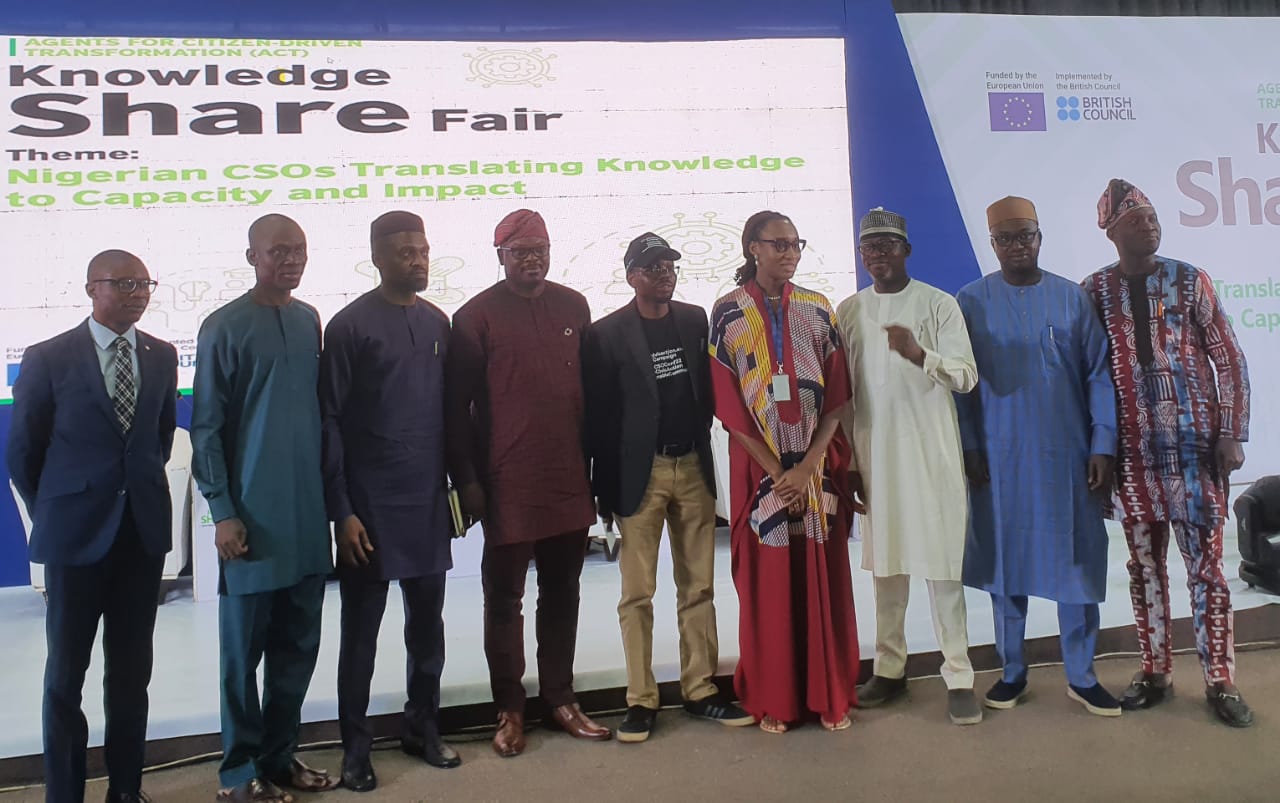Gift Wada
The European Union (EU) and the British Council have urged the Civil Society Organizations to collaborate with government in mapping out an enabling environment to enable CSOs operate effectively in driving sustainable development.
The National Program Manager, Agents for Citizen-Driven Transformation (ACT) program, Damilare Babalola said the European Union and the British Council through the ACT program aims to facilitate relationship between government, CSOs and the regulatory agencies to promote mutual understanding, enabling environment and sustainable development programs across the country
The European Union-funded ACT Programme was inaugurated in Nigeria on September 24, 2019, with the goal of contributing to inclusive, effective, responsible, and gender-responsive development in the country.
Babalolo stated this during a knowledge share fair held in Abuja with the theme: “ Nigerian CSOs Translating Knowledge to Capacity and Impact.”
While lamenting the gap in the nongovernmental organizations, NGOs, he said, “There are misconceptions that civil organizations are not regulated but the fact is that they are well regulated but their are issues around compliance but ACT seek to promote compliance “
“We also notice weak capacity in some CSOs. The civil society are part of the mechanism used to drive sustainable development globally they are involved in policy advocacy policy engagement at different levels hence we need them to have a more strengthened capacity. They need to put internal government in place, HR policies, account policy to aid their functionalities,” Babalola explained.
He said government need to understand the space before setting laws and regulations.
“Regulotry agencies should come out and sensitize civil society organizations on the need for regulations. The FIRS should come out and enlighten CSOs more about the taxes and the consequences of not complying. PENCOM should enlighten actors in CSOs the government shouldn’t make laws on assumption,” he noted.
In his remarks, Oyebisi Oluseyi, executive Director, Nigeria Network of NGOs, NNNGO, said CSOs are interested in regulations that enables smooth operations but kicks against those that shrink civilc space and stand against them performing social responsibilities to the communities they are meant to reach
The executive director said, “We don’t want laws that will not allow us to do our work effectively. There’s a myth that non profit organizations are not regulated, but experience from what we have done showed that there are 54 existing laws that guides our operations.
We don’t want a law that will not allow us help the common man. If government policy is not working and we spark up, we don’t want a situation where the law will be used to arrest us. We also want to carry out projects in communities without government shrinking resources meant for community development projects,” Oluseyi noted.
Udo Ilo, Senior Director for Advocacy, Center for Civilians in Conflict, The Hague, Nertherland, said CSOs must focus on programs that are sustainable, in-line with the government policies and will impact the Nigerian community.
He emphasized on the need for CSOs to strengthen internal governance and control for accountability, public confidence and trust. He also urged Civil societies to engage with the government for more understanding.
While commending the European Union and the British Council for the ACT Program, Mina Ogbanga, chief operations officer, Rivers Network of NGOs said Regulatory agencies should make policies easy for compliance and not make processes unnecessary cumbersome especially when it comes to registration.

